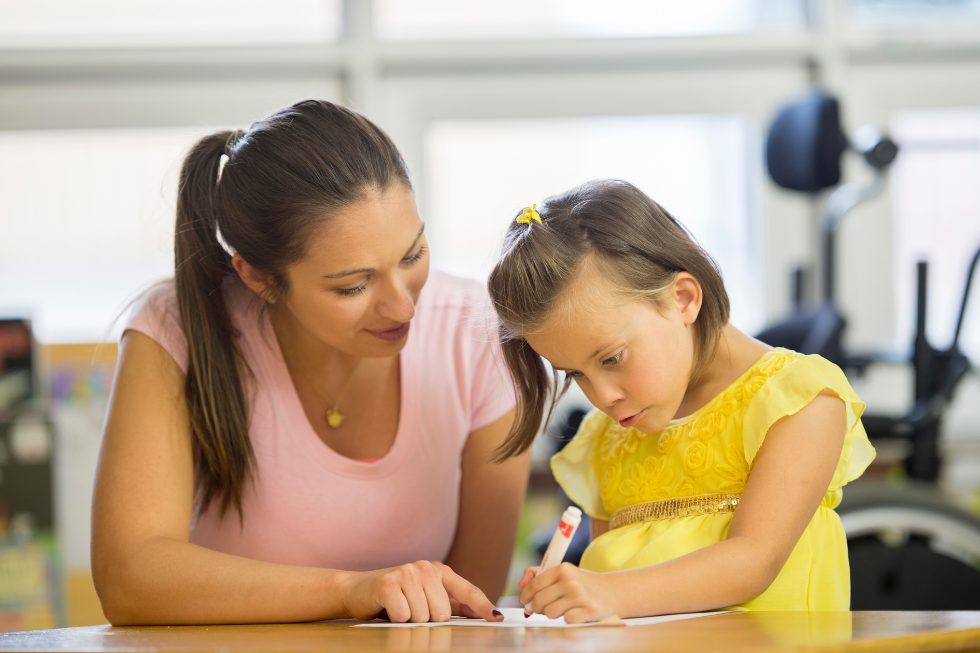Special education teachers provide critical service and support to Nebraska’s students impacting a wide variety of needs. Supporting diverse groups of students requires special education teachers to demonstrate skills across many domains. They must have skills in effective team communication, cognitive and academic assessment, social-emotional and behavioral support, and specialized instruction. Without special education teachers, schools could not “ensure all students are educated and participate with other children with disabilities and nondisabled children” as mandated by federal regulation (IDEA regulation 300.320(a)(4)).
Here are four ways special education teachers provide essential support:
1. Communication
Special Education teachers coordinate and guide collaborative activities between teachers, parents, agencies and other organizations. Their specialized knowledge of team member roles and community support allows them to act as a liaison between the school and the community.
Key responsibilities include:
- Guide teams in federal and state special education policy and practice.
- Ensure compliance through procedural requirements (e.g., paperwork and processes).
- Coordinate discussions between grade-level and school-level teams about specialized student needs.
- Collaborate with related service providers and manage scheduling of services.
- Communicate with community agencies and providers to build school community connections.
2. Assessment
Nebraska supports students verified across 13 disability areas. Special education teachers in Nebraska understand and guide assessment based on the Nebraska Department of Education’s Eligibility Guidelines. Their unique skills are essential to accurately determine student needs and identifying appropriate supports.
Key responsibilities include:
- Guide the multidisciplinary team in understanding state special education services qualification and assessment criteria.
- Lead teams in identifying appropriate evaluations for individual students.
- Administer and interpret special education assessments to guide individualized instruction.
- Integrate needs into students’ Individualized Education Plans (IEPs).
3. Social-Emotional and Behavioral
Many students who struggle with social-emotional or behavioral needs are served in special education. Special education teachers maintain expertise in facilitating self-regulation and supporting plans to ensure student success.
Key responsibilities include:
- Communicate specialized behavior support knowledge to teachers and administrators.
- Guide teams in conducting behavioral assessments and identifying necessary supports.
- Coordinate and implement of behavioral and safety plans.
4. Instruction
Special education teachers provide instruction in multiple settings. They must remain flexible and change educational locations as needs arise. In addition, they must maintain content area knowledge (e.g., math, reading, English/language arts, science, social studies and the arts) to support, adapt and accommodate content based on students’ needs.
Key responsibilities include:
- Advocate for specialized student instruction.
- Provide student and teacher support and ensure necessary accommodations and modifications are made based on student needs.
- Provide instruction across multiple settings.
- Schedule, organize and train paraprofessionals to support students.
- Collect and review data to complete federally required progress reports.
Contact us!
Please reach out to learn more about Get SET Nebraska.
Pamela Brezenski, EdD
Project Manager, Get SET Nebraska
pbrezenski@esu13.org
701-578-5704

